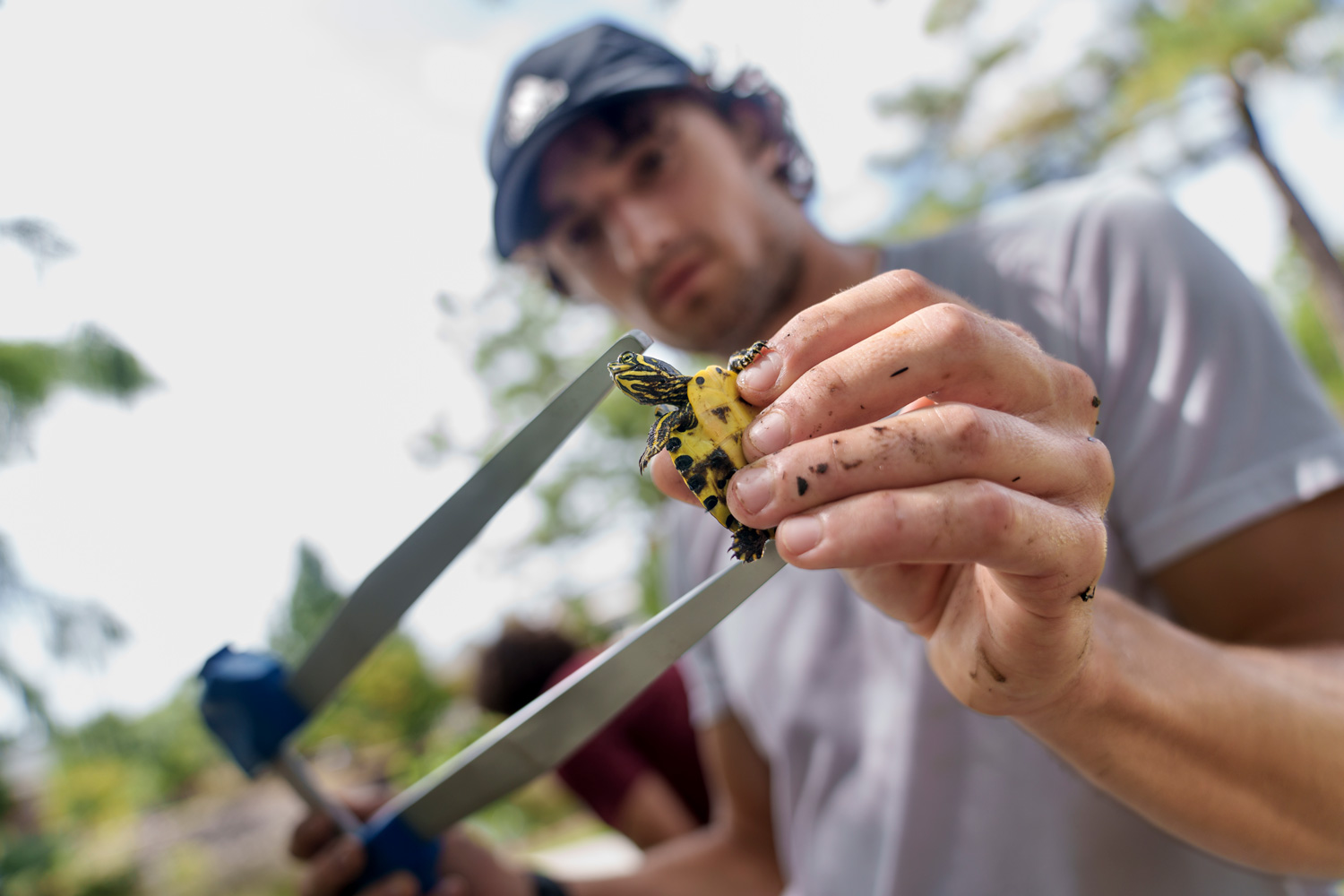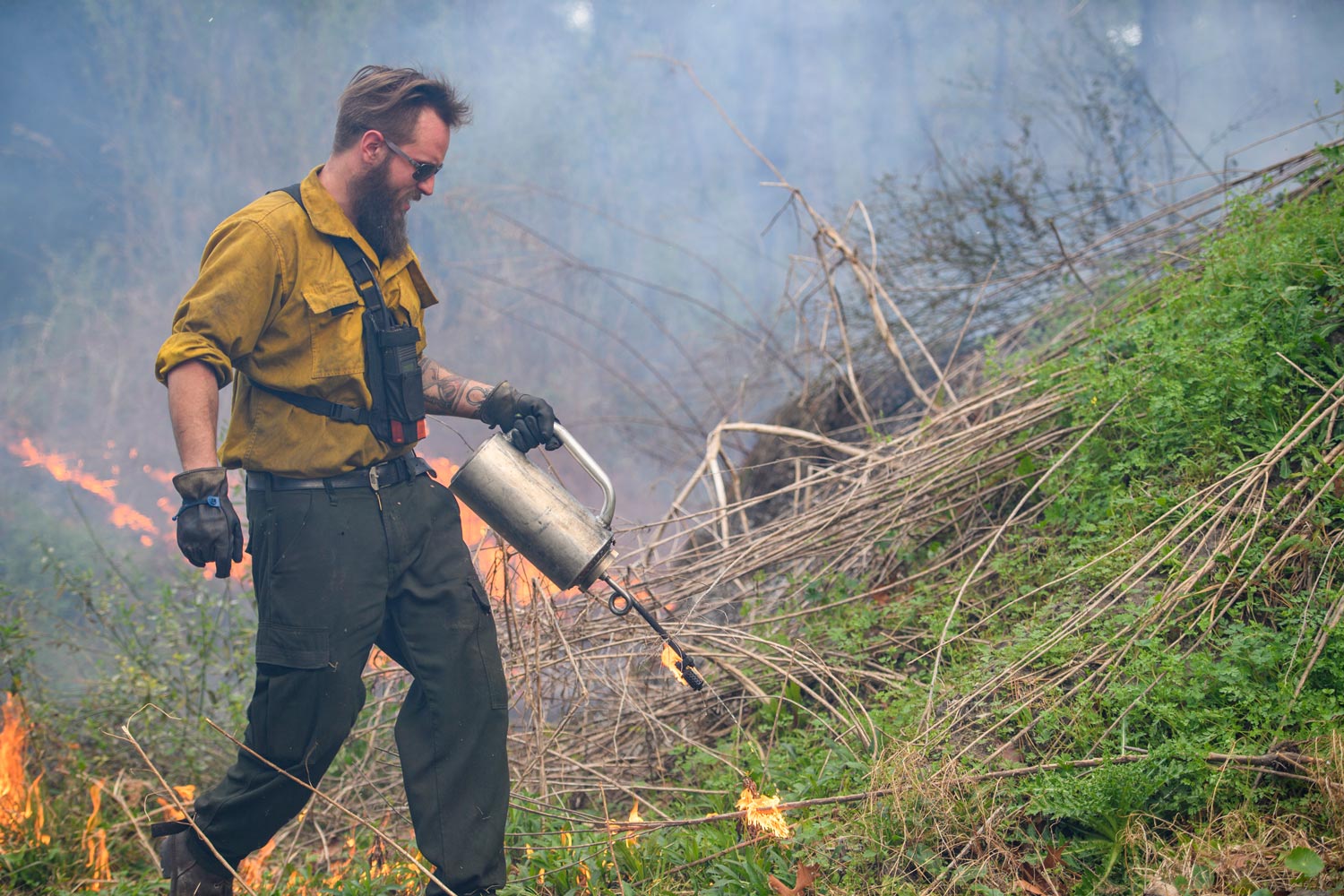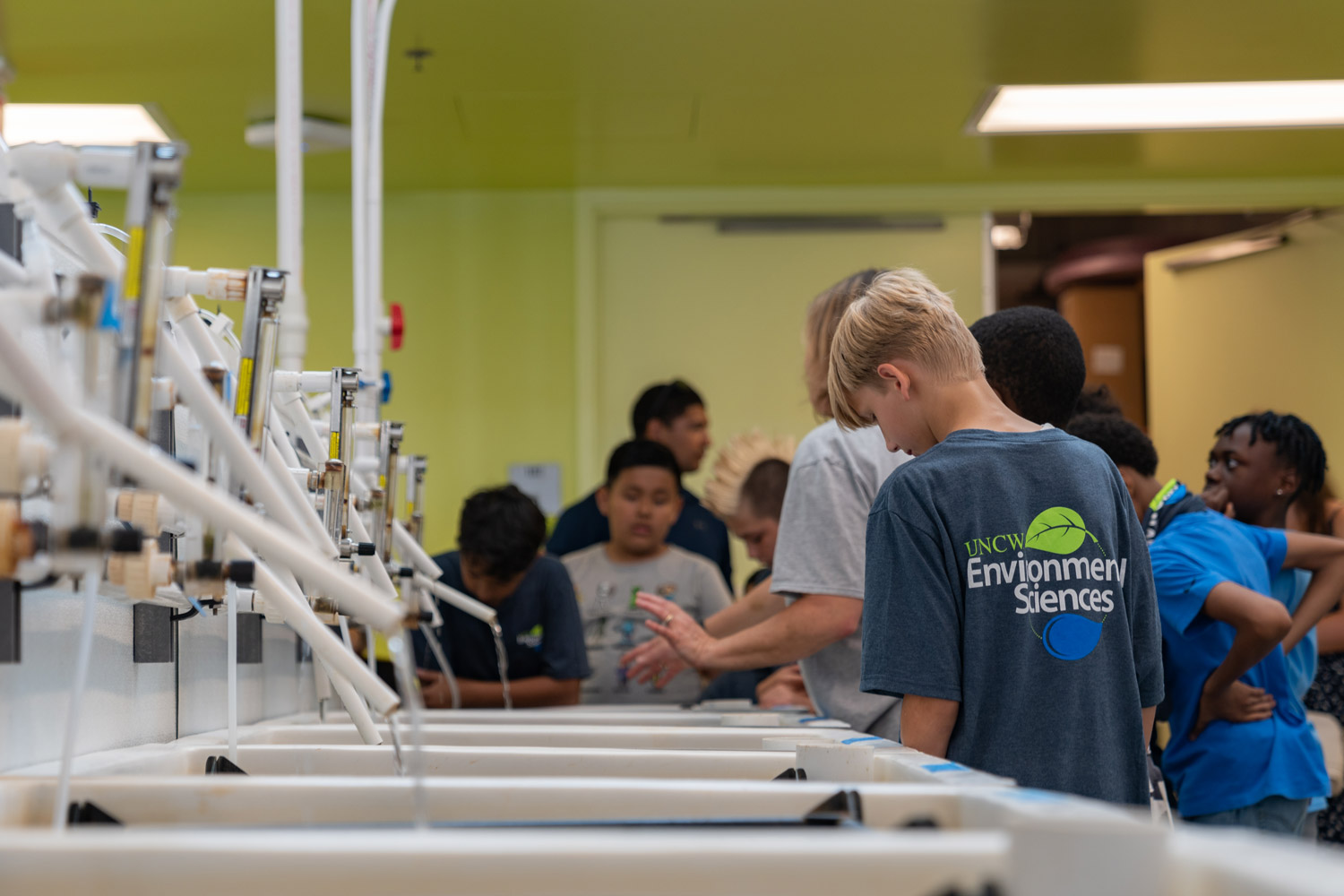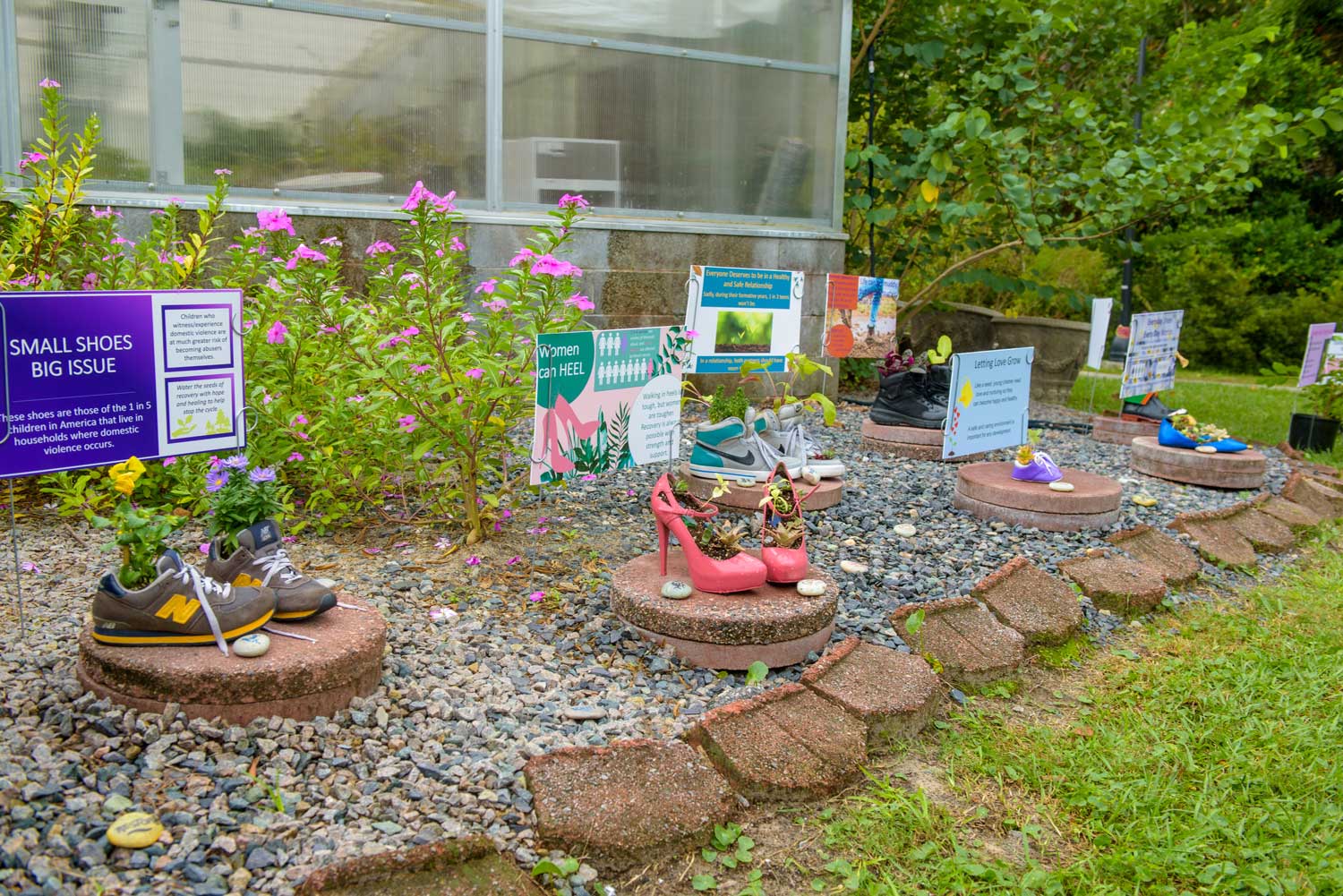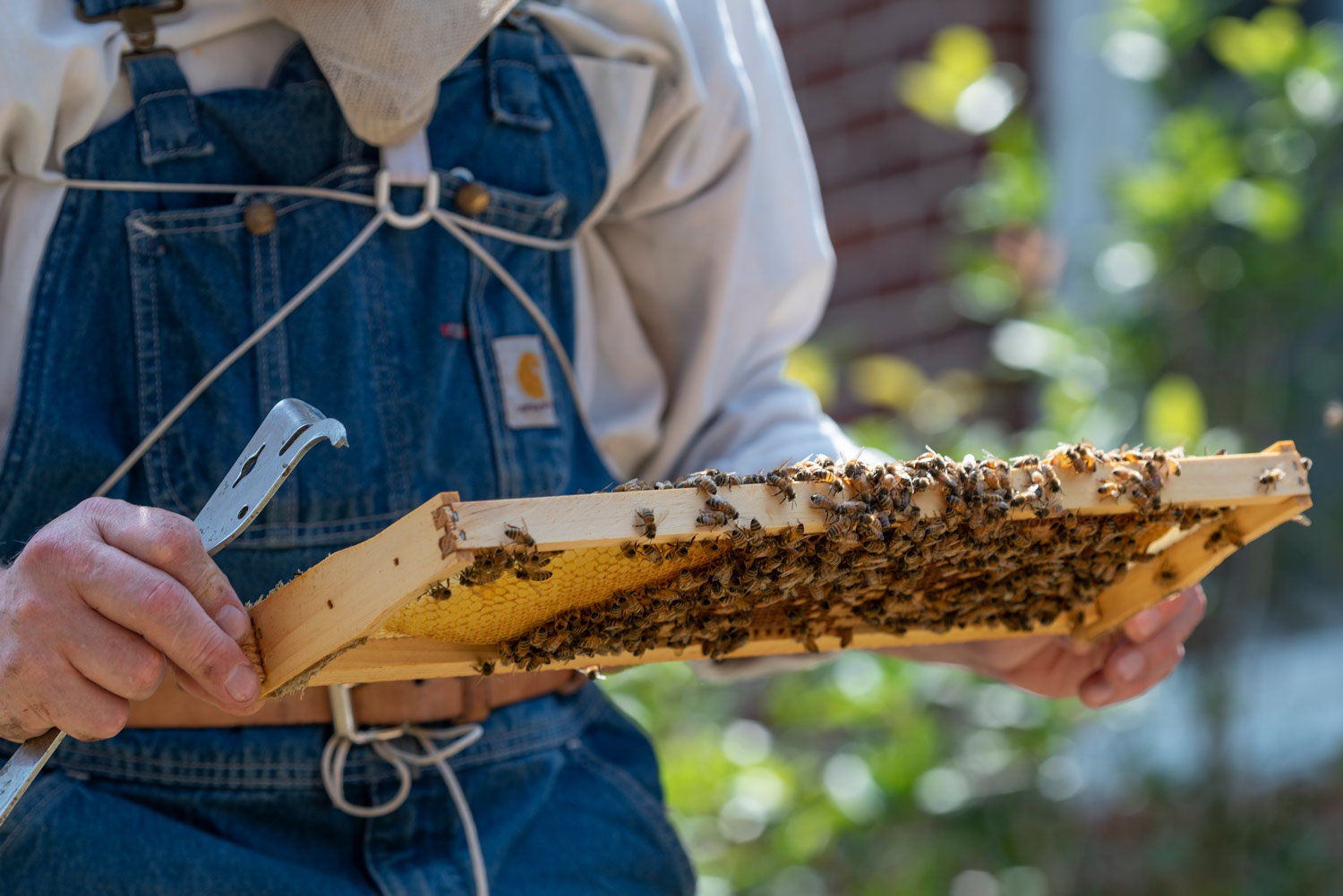Research & Applied Learning
Faculty Research
Research Focus: Dr. Rachael Urbanek’s main research interests focus broadly on urban wildlife management, human dimensions of wildlife and human-wildlife conflict and resolution.
Her current work involves predator exclusion to protect sea turtle nests, long-term use of highway underpasses and carnivore presence throughout New Hanover County.
Read more about Dr. Urbanek's research and work with students on her faculty website.
- Fisheries economics
- Coastal tourism economics
- Coastal water quality economics
- Coastal storm/hurricane economics
- Saltwater aquaculture economics
Read more about Dr. Dumas's research and work with students on his faculty website.
Research Focus: Dr. Devon Eulie's main research interests focus on coastal processes and management.
Her current research spans across coastal North Carolina. Dr. Eulie works with multiple partners across the state including state agencies, local communities, and nonprofits to conduct research on coastal processes, hazards, and management. Additionally, Dr. Eulie has conducted research in France and Belize.
Read more about Dr. Eulie's research and work with students on her faculty website.
Research Focus: Dr. Joni ‘Osku’ Backstrom's current research focuses on beach and shoreface morphodynamics, offshore wind, coastal storms, sand resource management and using remote sensing, diving and sampling techniques to map and characterize reefs, shipwrecks and coastal/marine environments.
Previous Research: Coastal geologist and environmental marine scientist with professional industry and academic expertise across Europe and the United States.
Served in Europe as a principal marine geologist with a focus on offshore renewable energy, marine sand and gravel and coastal environmental impact studies.
Read more about Dr. Backstrom's research and work with students on his faculty website.
Research Focus: Hannah Eaton's research focus is on program evaluation, environmental education and community outreach. She takes pride in creating environmental education programming that is inclusive, outcome-driven and impactful.
Research Focus: Dr. Troy Frensley is serving as a co-principal investigator on the funding program "NSF Advancing Informal Science Learning (AISL)" to conduct a study of environmental education programs for youth across the United States. He conducts this research with colleagues from:
-
Clemson University (Dr. Bob Powell, Principal Investigator; Dr. Ryan Gagnon, Co-PI)
-
Virginia Tech (Dr. Marc Stern, Co-PI)
The project titled "What leads to better outcomes in informal STEM-based environmental education programs for youth?" will examine the characteristics and outcomes of a large sample of EE programs for youth. The goal is to elucidate program characteristics that most powerfully influence 21st century learning outcomes. The award amount is $1,944,846 and duration of the project will be October 1, 2019, to December 31, 2023. EE programs for youth, particularly day-long school field trip programs, are popular and reside at the intersection of formal and informal STEM education.
Such field trips provide opportunities for diverse audiences to participate in shared learning experiences, but current understanding of what leads to success in these programs is limited. This large-scale study will address this gap in knowledge by investigating the linkages between program characteristics and participant outcomes for at least 800 single-day EE field trip programs for youth in grades 5-8. This research focuses on programs for diverse and underserved audiences.
This study will result in the identification of evidence-based practices that will inform future program design for a wide variety of settings, including nature centers, national parks, zoos, museums, aquariums and other locations providing informal EE programs.
Read more about Dr. Frensley's research and work with students on his faculty website.
Research Focus: Dr. Huili Hao’s research focuses on survey research, sustainability, sense of place and community resilience. Funded by NSF RAPID, North Carolina Sea Grant and other agencies, Dr. Hao has conducted research on the community’s physical and social vulnerability, risk perceptions, sustainable development, and resilience based on both large secondary data sets and qualitative research design.
Research Focus: Dr. Meredith Hovis' primary areas of expertise include nature-based solutions, community engagement and co-production of knowledge, hazard mitigation, disaster resilience, natural resource management, policy and economics.
Read more about Dr. Hovis' research and work with her students on her faculty website.
Research Focus: Dr. Christine Li is an environmental educator who works to engage diverse youth audiences on issues related to conservation, natural resources and the environment through deliberation and outdoor learning. She also promotes interdisciplinary and community level research and collaboration in natural resource management.
Read more about Dr. Li's research and work with students on her faculty website.
Research Focus: Amy Long is a Certified North Carolina Environmental Educator® and maintains a small research program, working with undergraduate and graduate students to study and restore native plant populations to degraded lands and stressed shoreline environments.
Her students use population survey techniques and planting practices to test and assess native-plant-focused restoration projects in beach dune ecosystems, brackish marsh estuarine ecosystems, and coastal forests and grasslands, developing rapid assessment tools and proven restoration strategies for government regulators, resource managers, and restoration practitioners throughout North Carolina.
She is the chair of the Wilmington TreeFest Committee, and a member of the Society of Restoration Ecology and Environmental Educators of North Carolina.
Research Focus: Dr. Eric 'Britt' Moore's research focuses on soil hydrology, soil management, plant-soil interactions, soil physics, sustainable agriculture and STEM education.
Read more about Dr. Moore's research and work with students on his faculty website.
Research Focus: Dr. Monica Rother conducts research within the broad disciplines of forest ecology, wildland fire ecology, biogeography and dendrochronology (tree-ring science).
Her current research uses tree-ring records to understand historical wildfire activity in longleaf pine ecosystems throughout the Southeastern Coastal Plain. She is also involved in studies that examine recent climate-driven changes in wildfire activity and post-wildfire forest recovery.
Read more about Dr. Rother’s research, including opportunities for students on her faculty website.
Research Focus: Roger Shew's research focuses on studies of coastal issues and processes and surface and groundwater sources and quality in southeastern North Carolina. An additional area of current interest is geoscience and environmental education.
Mr. Shew holds a dual appointment in the Department of Earth and Ocean Sciences Department and the Department of Environmental Sciences.
Read more about Mr. Shew's research on his faculty website.
Research Focus: Dr. Kgosietsile Velempini's research focuses on environmental and sustainability education, sustainable development, tourism, community-based natural resource management, climate change and local knowledge systems in Africa and beyond. He has published in various environmental and geography education international journals.
Environmental Sciences in Action
